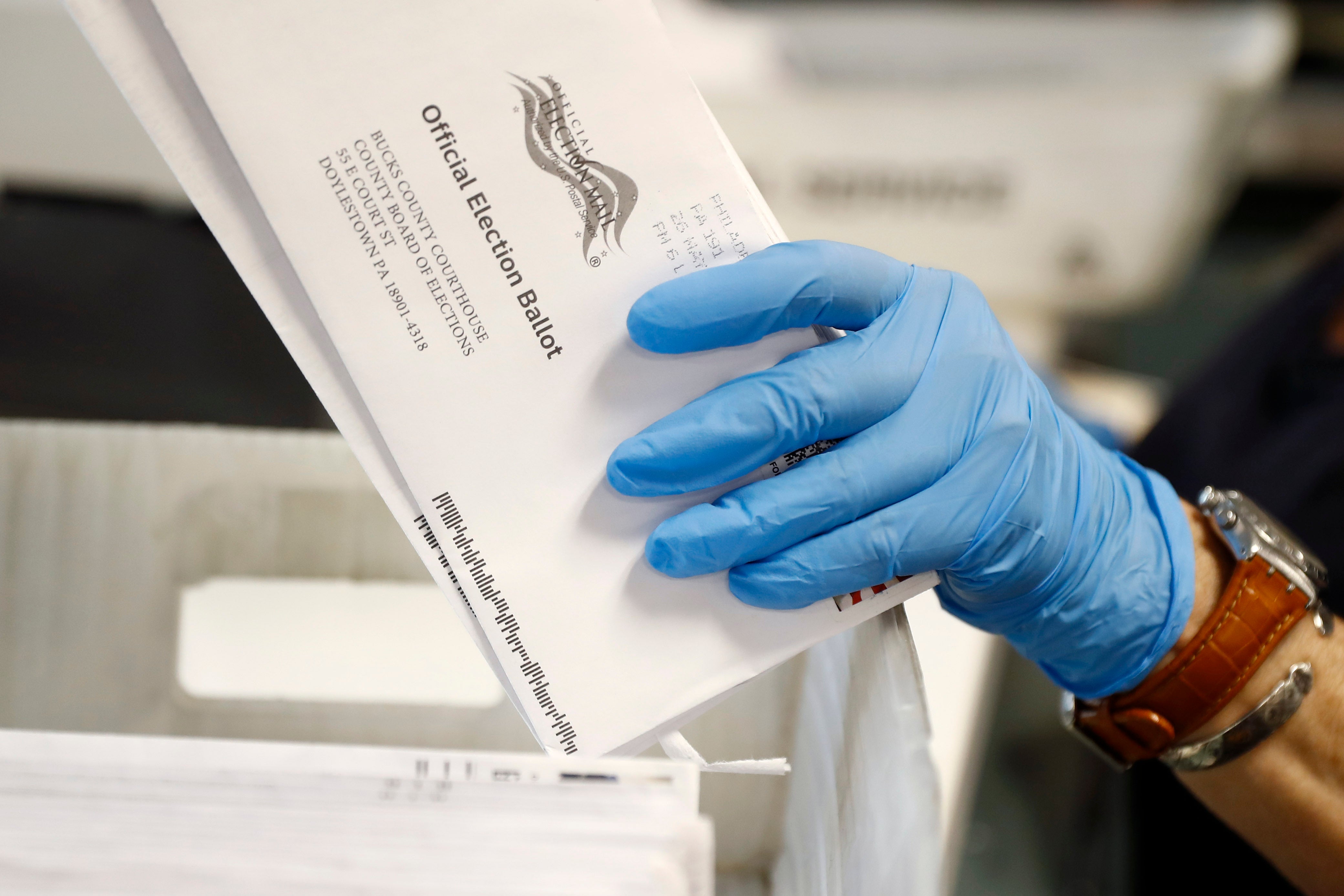Democrats: Justices' 4-4 tie in election case ominous sign
The Supreme Court’s action in a Pennsylvania voting case has heightened fears among Democrats about Amy Coney Barrett joining the high court in time to decide a post-election dispute and with it, the winner of the White House

With Amy Coney Barrett expected to join the Supreme Court as early as next week, the court s action in a Pennsylvania voting case has heightened fears among Democrats about the court being asked to decide a post-election dispute and with it, the winner of the White House.
The justices split 4-4 Monday over a Republican plea to undo a state court order and force elections officials to ignore absentee ballots received after Election Day, Nov. 3. The tie vote left the Pennsylvania court order in effect and allows mailed ballots to be counted if they are received by Nov. 6. Chief Justice John Roberts and his three liberal colleagues voted to leave the court order in place.
The four conservative members of the court who would have granted the GOP's request are likely to be joined soon by Barrett. That's a potential majority, even without Roberts, in any election-related dispute, whether from Pennsylvania or any other battleground state where mailed-in ballots or a recount fight could decide the winner.
“One more vote, provided by a hard-right, Trump-nominated justice, could be the difference between voting rights and voting suppression,” Senate Democratic leader Chuck Schumer of New York said Tuesday.
President Donald Trump already has signaled one reason for Barrett’s speedy nomination, just eight days after Justice Ruth Bader Ginsburg’s death, was to have her confirmed and installed on the court in time for any election lawsuit that might reach the justices.
The last time that happened was in 2000, when the court effectively decided the presidential election in favor of George W. Bush by a 5-4 vote.
If nothing else, the split vote Monday strongly suggested there is not likely to be the requisite five votes to upend a federal appeals court order that has blocked a six-day extension of the time to receive and count absentee ballots in Wisconsin. That case is pending at the Supreme Court.
The court's conservatives, Roberts included, have regularly sided with state officials who object when a federal court relaxes election rules, even if the changes arise from the coronavirus pandemic.
At the same time, the Supreme Court generally won't disturb state court rulings that are rooted in state law.
But civil rights lawyers and election law experts said the vote in the Pennsylvania case indicates at least four conservatives may be willing to look at state court election-related decisions in a way that calls to mind Bush v. Gore.
Pennsylvania Republicans relied in part on an opinion from Justice Clarence Thomas and two other conservative justices in Bush v. Gore to argue that the Supreme Court should get involved in the case because the state court had improperly taken powers given by the U.S. Constitution to state lawmakers when it comes to presidential elections. The court ruled for Bush on other grounds, that ballots were being handled differently across the state in violation of the Constitution's guarantee of equal protection.
"Based on Judge Barrett’s record, there is every reason to believe that she would have been a fifth vote in favor of the Supreme Court overstepping its bounds and interfering with a non-federal issue that would have jeopardized voter access,” said Kristen Clarke, president and executive director of the Lawyers’ Committee for Civil Rights Under Law. The group opposes Barrett's confirmation.
The justices on Monday provided no written explanation of their votes, so it is impossible to say exactly why Justices Samuel Alito, Neil Gorsuch, Brett Kavanaugh and Thomas would have granted the Republican request, or why the other half of the shorthanded court didn't.
The Supreme Court has never cited Bush v. Gore in an opinion of the court and in its unsigned majority opinion, the court wrote, “Our consideration is limited to the present circumstances.”
But two lawyers who worked for Bush's cause in 2000, Roberts and Kavanaugh, now sit on the court. And they soon could be joined by a third, Barrett.
Bookmark popover
Removed from bookmarks